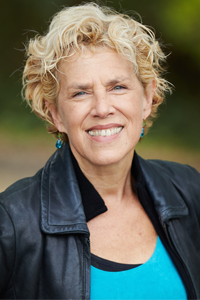Don't see what you're looking for?
Main Site
Berklee.eduCampuses and Schools

Kelly Davidson
Cercie Miller
For media inquiries, please contact Media Relations
- Saxophonist
- Leader of the Cercie Miller Quartet
- Member of the Your Neighborhood Saxophone Quartet and MCM Trio
- Performance history includes membership in the Lisa Thorson Quintet, Patty Larkin Band, Didi Stewart and Friends, and Girls' Night Out
- Appeared as a freelance musician with many artists, including Deborah Henson-Conant and Rebecca Parris
- Recordings include Dedication and Blue Vistas (Cercie Miller Quartet); Your Neighborhood Saxophone Quartet (YNSQ); Step into the Light, I'm Fine, and Regrooving the Dream (Patty Larkin); and Resonance and From This Moment On (Lisa Thorson)
- Jazz/world music coordinator, director of Wellesley BlueJazz, jazz theory and jazz saxophone instructor, and senior music performance faculty, Wellesley College
- Diploma, New England Conservatory, jazz studies
"In my ear training classes, I like to keep the focus moving around the room, doing relays of rhythms and solfège, for example. I want everyone to participate and contribute. I don’t like to stand in front of the class and lecture; I like to keep the energy flowing and mix things up, to get performance and listening and analysis all going in the same session. Ear training in particular is something that involves a lot of interaction, a lot of back and forth."
"Every student is such a strong individual in terms of what he or she brings to your subject or to any subject: where the student’s coming from, what his or her skill set is, and even the geographical location. I’ve had everyone in my classes, from somebody from Mongolia to someone from the Fiji Islands. People really come in with different backgrounds and different skill sets, and that’s one of the things that makes it so interesting to teach. I think I’m sensitive to the fact that it’s a big world out there, and I’m not narrow in my focus or in what I think is legitimate. I have had different experiences myself, so it helps me relate to my students. I appreciate what they teach me in all the kinds of musical projects that they’re involved in."
"For the musician interested in a range of contemporary music, Berklee is the place where all types of contemporary music come together. I don’t know of any program that more effectively brings the elements of contemporary music together. Many conservatories have departments and sections that do address contemporary music, but those are departments within a larger conservatory, whereas Berklee has a track record of being able to convey all of this material in a really organized and effective way."
